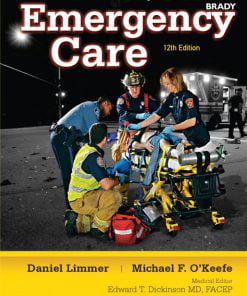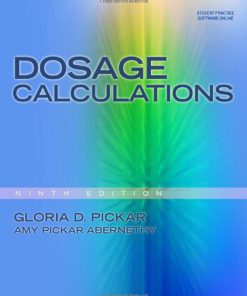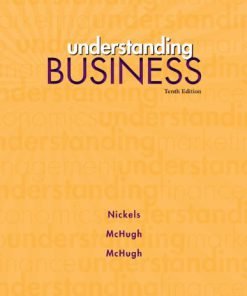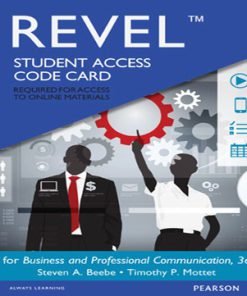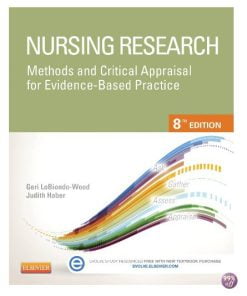Downloadable Test Bank for Introduction To Psychology 10th Edition Plotnik
$35.00 Original price was: $35.00.$26.50Current price is: $26.50.
Downloadable Test Bank for Introduction To Psychology 10th Edition Plotnik
Downloadable Test Bank for Introduction To Psychology 10th Edition Plotnik
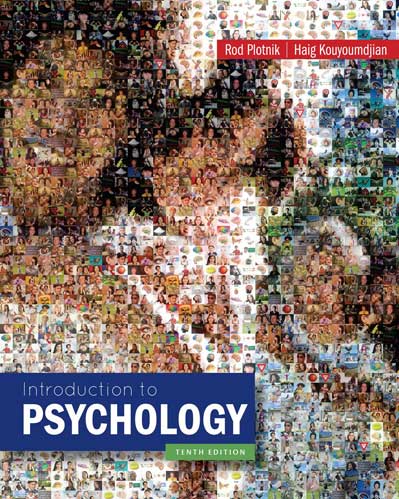
Product details:
- ISBN-10 : 1133939538
- ISBN-13 : 978-1133939535
- Author: Rod Plotnik
Featuring a look and style that’s more like a magazine than a textbook, Plotnik’s INTRODUCTION TO PSYCHOLOGY, Tenth Edition will draw you in and show you how exciting the study of psychology can be. This modular, visual approach to the fundamentals of psychology–the pioneer of the “visual” or “magazine” style approach–makes even the toughest concepts engaging and entertaining. Each and every page is individually planned, written, and formatted to effectively incorporate the use of Visual Cues, which help you to better remember information. Extensively updated, the text also utilizes “chunking,” a method of breaking concepts down into small, easily digested sections that help you learn at your own pace.
Table contents:
- To the Instructor: Changes & Features
- Distinctive Learning Approach
- Integrated Custom Illustrations
- Modules: More Flexible than Chapters
- Visual Learning: Text/Graphic Integration & Chunking
- Concept Review: Tests Knowledge of Major Concepts
- Cultural Diversity: Opens Students’ Minds
- Research Focus: How Psychologists Answer Questions
- Application: Psychology’s Practical Side
- Critical Thinking: Challenges Students’ Minds
- Summary Test: Review & Test of Complete Module
- Links to Learning: More Opportunities
- Supplements
- Reviewers & Many Thanks
- Acknowledgments & Many Thanks
- To the Student: A Different Kind of Textbook
- Module 1: Discovering Psychology
- Introduction
- A: Definition & Goals
- B: Modern Approaches
- C: Historical Approaches
- D: Cultural Diversity: Early Discrimination
- Concept Review
- E: Research Focus: Taking Class Notes
- F: Careers in Psychology
- G: Research Areas
- H: Application: Study Skills
- I: Critical Thinking
- Summary Test
- Links to Learning
- Module 2: Psychology & Science
- Introduction
- A: Answering Questions: Scientific Method
- B: Descriptive Research
- C: Cultural Diversity: Use of Placebos
- Concept Review
- D: Correlational Research
- E: Experimental Research
- F: Research Focus: ADHD Controversies
- G: Application: Ethics in Doing Research
- H: Critical Thinking
- Summary Test
- Links to Learning
- Module 3: Brain’s Building Blocks
- Introduction
- A: Overview: Human Brain
- B: Neurons: Structure & Function
- C: Neurons Versus Nerves
- D: Neurons: Communication
- E: Reflex Responses
- Concept Review
- F: Research Focus: What Is a Phantom Limb?
- G: Cultural Diversity: Plants & Drugs
- H: Application: Experimental Treatments
- I: Critical Thinking
- Summary Test
- Links to Learning
- Module 4: Incredible Nervous System
- Introduction
- A: Genes & Evolution
- B: Cognitive Neuroscience
- C: Nervous System: Division & Functions
- D: Brain: Structures & Functions
- E: Limbic System: Structures & Functions
- F: Endocrine System: Structures & Functions
- Concept Review
- G: Research Focus: Sex Differences in the Brain?
- H: Cultural Diversity: Cultural Neuroscience
- I: Application: Split Brain
- J: Critical Thinking
- Summary Test
- Links to Learning
- Module 5: Sensation
- Introduction
- A: Vision
- B: Audition
- C: Vestibular & Kinesthetic Senses
- D: Chemical Senses
- E: Touch
- Concept Review
- F: Cultural Diversity: Disgust
- G: Research Focus: Mind over Body?
- H: Pain
- I: Application: Artificial Senses
- J: Critical Thinking
- Summary Test
- Links to Learning
- Module 6: Perception
- Introduction
- A: Thresholds
- B: Sensation Versus Perception
- C: Perceptual Organization
- D: Perceptual Constancy
- E: Depth Perception
- F: Cultural Diversity: Influence on Perceptions
- G: Research Focus: Unconscious Perceptions
- Concept Review
- H: Strange Perceptions
- I: Application: Creating Perceptions
- J: Critical Thinking
- Summary Test
- Links to Learning
- Module 7: Sleep & Dreams
- Introduction
- A: Continuum of Consciousness
- B: Rhythms of Consciousness
- C: Stages of Sleep
- D: Research Focus: Circadian Preference
- E: Questions about Sleep
- Concept Review
- F: Cultural Diversity: Incidence of SAD
- G: Theories of Dream Interpretation
- H: Application: Sleep Problems & Treatments
- I: Critical Thinking
- Summary Test
- Links to Learning
- Module 8: Hypnosis & Drugs
- Introduction
- A: Hypnosis
- B: Research Focus: Meditation & School Stress
- C: Drugs: Overview
- D: Stimulants
- E: Depressants
- F: Cultural Diversity: Alcoholism Rates
- Concept Review
- G: Hallucinogens
- H: Opiates
- I: Application: Treatment for Drug Abuse
- J: Critical Thinking
- Summary Test
- Links to Learning
- Module 9: Classical Conditioning
- Introduction
- A: Three Kinds of Learning
- B: Procedure: Classical Conditioning
- C: Other Conditioning Concepts
- D: Adaptive Value & Uses
- E: Theories of Classical Conditioning
- Concept Review
- F: Research Focus: Conditioning Little Albert
- G: Cultural Diversity: Conditioning Racial Prejudice
- H: Application: Conditioned Fear & Nausea
- I: Critical Thinking
- Summary Test
- Links to Learning
- Module 10: Operant & Cognitive Approaches
- Introduction
- A: Operant Conditioning
- B: Reinforcers
- C: Schedules of Reinforcement
- D: Other Conditioning Concepts
- E: Cognitive Learning
- Concept Review
- F: Biological Factors
- G: Research Focus: Viewing Aggression
- H: Cultural Diversity: Teaching Music
- I: Application: Behavior Modification
- J: Critical Thinking
- Summary Test
- Links to Learning
- Module 11: Types of Memory
- Introduction
- A: Three Stages of Memory
- B: Sensory Memory: Recording
- C: Short-Term Memory: Working
- D: Long-Term Memory: Storing
- E: Research Focus: Strengthening Episodic Memories
- F: Encoding: Transferring
- G: Repressed Memories
- Concept Review
- H: Cultural Diversity: Oral Versus Written
- I: Application: Unusual Memories
- J: Critical Thinking
- Summary Test
- Links to Learning
- Module 12: Remembering & Forgetting
- Introduction
- A: Organization of Memories
- B: Forgetting Curves
- C: Reasons for Forgetting
- D: Biological Bases of Memory
- Concept Review
- E: Mnemonics: Memorization Methods
- F: Cultural Diversity: Differences in Episodic Memory
- G: Research Focus: Recalling Sexual History
- H: Application: Eyewitness Testimony
- I: Critical Thinking
- Summary Test
- Links to Learning
- Module 13: Intelligence
- Introduction
- A: Defining Intelligence
- B: Measuring Intelligence
- C: Distribution & Use of IQ Scores
- D: Potential Problems of IQ Testing
- E: Nature-Nurture Question
- Concept Review
- F: Cultural Diversity: Races, IQs, & Immigration
- G: Research Focus: Genius & Prodigy Brains
- H: Application: Intervention Programs
- I: Critical Thinking
- Summary Test
- Links to Learning
- Module 14: Thought & Language
- Introduction
- A: Forming Concepts
- B: Solving Problems
- C: Thinking Creatively
- D: Reasoning & Decision Making
- E: Language: Basic Rules
- F: Acquiring Language
- Concept Review
- G: Research Focus: Dyslexia
- H: Cultural Diversity: Influences on Thinking
- I: Application: Do Animals Have Language?
- J: Critical Thinking
- Summary Test
- Links to Learning
- Module 15: Motivation
- Introduction
- A: Theories of Motivation
- B: Hunger
- C: Sexual Behavior
- D: Cultural Diversity: Genital Cutting
- Concept Review
- E: Achievement
- F: Research Focus: Overcoming Educational Disadvantages
- G: Application: Dieting & Eating Disorders
- H: Critical Thinking
- Summary Test
- Links to Learning
- Module 16: Emotion
- Introduction
- A: Peripheral Theories
- B: Cognitive Appraisal Theory
- C: Affective Neuroscience Approach
- D: Universal Facial Expressions
- E: Functions of Emotions
- F: Happiness
- G: Cultural Diversity: Emotions across Cultures
- Concept Review
- H: Research Focus: Emotional Intelligence
- I: Application: Lie Detection
- J: Critical Thinking
- Summary Test
- Links to Learning
- Module 17: Infancy & Childhood
- Introduction
- A: Prenatal Development
- B: Sensory & Motor Development
- C: Emotional Development
- D: Research Focus: Temperament
- E: Cognitive Development
- F: Social Development
- G: Gender Development
- H: Infancy & Childhood Review
- Concept Review
- I: Cultural Diversity: Gender Roles
- J: Application: Child Abuse
- K: Critical Thinking
- Summary Test
- Links to Learning
- Module 18: Adolescence & Adulthood
- Introduction
- A: Physical Development: Puberty
- B: Cognitive & Emotional Development
- C: Morality & Parenting
- D: Personality & Social Development
- E: Adolescence Review
- F: Gender Roles, Love & Relationships
- Concept Review
- G: Research Focus: Happy Marriages
- H: Cultural Diversity: Preferences for Partners
- I: Adulthood & Aging
- J: Application: Suicide
- K: Critical Thinking
- Summary Test
- Links to Learning
- Module 19: Freudian & Humanistic Theories
- Introduction
- A: Freud’s Psychodynamic Theory
- B: Divisions of the Mind
- C: Developmental Stages
- D: Freud’s Followers & Critics
- E: Humanistic Theories
- Concept Review
- F: Cultural Diversity: Unexpected High Achievement
- G: Research Focus: Shyness
- H: Application: Assessment—Projective Tests
- I: Critical Thinking
- Summary Test
- Links to Learning
- Module 20: Social Cognitive & Trait Theories
- Introduction
- A: Social Cognitive Theory
- B: Trait Theory
- Concept Review
- C: Research Focus: 180-Degree Change
- D: Cultural Diversity: Suicide Bombers
- E: Review: Four Theories of Personality
- F: Application: Assessment—Objective Tests
- G: Critical Thinking
- Summary Test
- Links to Learning
- Module 21: Health, Stress, & Coping
- Introduction
- A: Appraisal of Stress
- B: Stress Responses
- C: Stressful Experiences
- D: Personality & Health
- Concept Review
- E: Coping with Stress
- F: Positive Psychology
- G: Research Focus: Treatment for Panic Disorder
- H: Cultural Diversity: Tibetan Monks
- I: Application: Stress Management Programs
- J: Critical Thinking
- Summary Test
- Links to Learning
- Module 22: Assessment & Psychological Disorders I
- Introduction
- A: Factors in Mental Disorders
- B: Assessing Mental Disorders
- C: Diagnosing Mental Disorders
- D: Anxiety Disorders
- E: Somatoform Disorders
- Concept Review
- F: Cultural Diversity: Asian Anxiety Disorder
- G: Research Focus: School Shootings
- H: Application: Treating Phobias
- I: Critical Thinking
- Summary Test
- Links to Learning
- Module 23: Psychological Disorders II
- Introduction
- A: Mood Disorders
- B: Personality Disorders
- C: Schizophrenia
- Concept Review
- D: Dissociative Disorders
- E: Cultural Diversity: Interpreting Symptoms
- F: Research Focus: Exercise Versus Drugs
- G: Application: Dealing with Mild Depression
- H: Critical Thinking
- Summary Test
- Links to Learning
- Module 24: Therapies
- Introduction
- A: Historical Background
- B: Questions about Psychotherapy
- C: Psychoanalysis
- D: Client-Centered Therapy
- E: Cognitive Therapy
- F: Behavior Therapy
- G: Cognitive-Behavioral Therapy
- Concept Review
- H: Common Factors & Therapy Settings
- I: Research Focus: EMDR
- J: Cultural Diversity: Different Healer
- K: Biomedical Therapies
- L: Application: Cognitive-Behavioral Techniques
- M: Critical Thinking
- Summary Test
- Links to Learning
- Module 25: Social Cognition & Behavior
- Introduction
- A: Perceiving Others
- B: Attributions
- C: Research Focus: Attributions & Grades
- D: Attitudes
- E: Cultural Diversity: National Attitudes & Behaviors
- F: Social & Group Influences
- Concept Review
- G: Social Neuroscience
- H: Aggression
- I: Application: Controlling Aggression
- J: Critical Thinking
- Summary Test
- Links to Learning
- Appendix Statistics in Psychology
- Summary Test
- Glossary
- References
- Name Index
- Subject Index
- Theme Index
People also search:
introduction to psychology 10th edition pdf
introduction to psychology(8th-10th edition) rita atkinson and hilgard
intro to psychology summary
summary of introduction to psychology
what is the best introduction to psychology textbook




